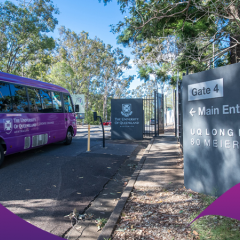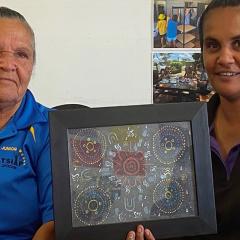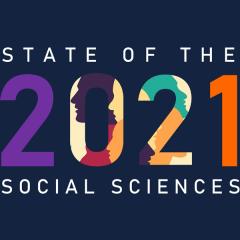ISSR researchers have been considering the impact of the COVID-19 pandemic on society. They have been undertaking research studies exploring the impact on educational outcomes for children and young people; reviewing the implementation of technologies to support contact tracing; surveying families to assess their experiences during the pandemic, considering University student experiences and working with social solution leaders across Australia to develop a framework for recovery.
ISSR's Activities
Learning through COVID-19: Maximising educational outcomes for Australia’s children and young people experiencing disadvantage
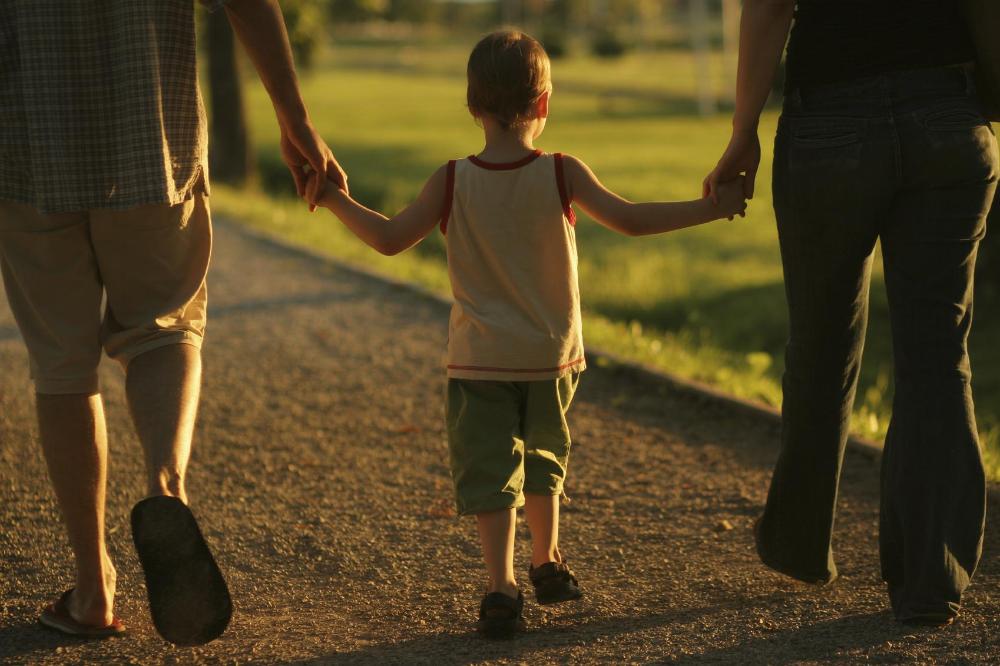
On 18 March 2020, the Prime Minister declared a ‘human biosecurity emergency’ given the risks COVID-19 posed to human health, which allowed the Health Minister to issue targeted, legally enforceable directions and requirements to combat the virus. In response, Education Departments implemented ‘remote schooling’ for the majority of students for parts of Terms 1 and 2, allowing attendance for children of essential workers and those designated vulnerable. In Victoria this has continued into Term 3. While this change in school delivery resulted in a disruption for all school children, based on limited evidence from past shock events, children experiencing disadvantage are likely to have suffered disproportionately and been most affected by social and educational disruptions resulting from changed school provisions. The impact of COVID-19 has not only disrupted schooling, but has also significantly affected families’ health and socio-economic circumstances. Children and young people already experiencing disadvantaged circumstances will potentially be more at risk of poorer educational outcomes as a result of COVID-19.
The Institute for Social Science (ISSR) at the University of Queensland is undertaking a study, funded by the Paul Ramsay Foundation, to explore the impact on learning through COVID-19. The study aims to understand the experience and needs of children and young people already at-risk for poorer wellbeing outcomes, educational outcomes and future employment prospects and provide an evidence-based platform to respond to these students needs’ in the recovery from COVID-19. This project will be led by Professor Mark Western and includes staff from across the Institute to undertake the study. See here for more information.
Digital contact tracing for Covid-19: new policy primer
 Digital contact tracing solutions for COVID-19 must offer exceptional speed and achieve high take-up rates to be useful, according to a working paper released by the Centre for Social Data Analytics (Auckland University of Technology) and the Institute for Social Science Research (The University of Queensland).
Digital contact tracing solutions for COVID-19 must offer exceptional speed and achieve high take-up rates to be useful, according to a working paper released by the Centre for Social Data Analytics (Auckland University of Technology) and the Institute for Social Science Research (The University of Queensland).
Australasian researchers led by Professor Rhema Vaithianathan (Auckland University of Technology, The University of Queensland) use a simple graphical model of infection transmissions to illustrate why COVID-19 is particularly challenging to manage with traditional manual contact tracing.
Speed
The researchers demonstrate how the epidemiological features of COVID-19 mean that, even before a patient becomes symptomatic, their contacts may have already infected a significant number of people. The authors come down firmly on the side of contact tracing solutions that offer instantaneous notifications (with the opportunity for follow up by public health officers to ensure isolation has occurred).
Uptake
Assuming that an instantaneous solution is adopted, the researchers explain how policymakers can identify the minimum take-up rate for the solution to be useful.
The researchers find that uptake of digital solutions only starts adding significant value (by taking work off manual contact tracers) at take-up levels above 60 per cent.
Demonstrating Value
Given the need for high uptake, the researchers find that building, and maintaining social licence for the use of digital tools is critical. Governments need to demonstrate that the value to the user is high and that privacy and security risks are low.
Because users have limited ability to judge the value of contact tracing tools, high trust is needed to achieve high take-up levels. The authors suggest that governments committing to an impact evaluation that will allow citizens to judge the impact of a tool will increase trust as well as take-up.
“We hope this working paper offers useful information and guidance for policymakers who are required to make high stakes decisions about digital contact tracing options both in the context of COVID-19 and beyond,” says Professor Vaithianathan.
Understanding the Social Impact of the COVID-19 pandemic
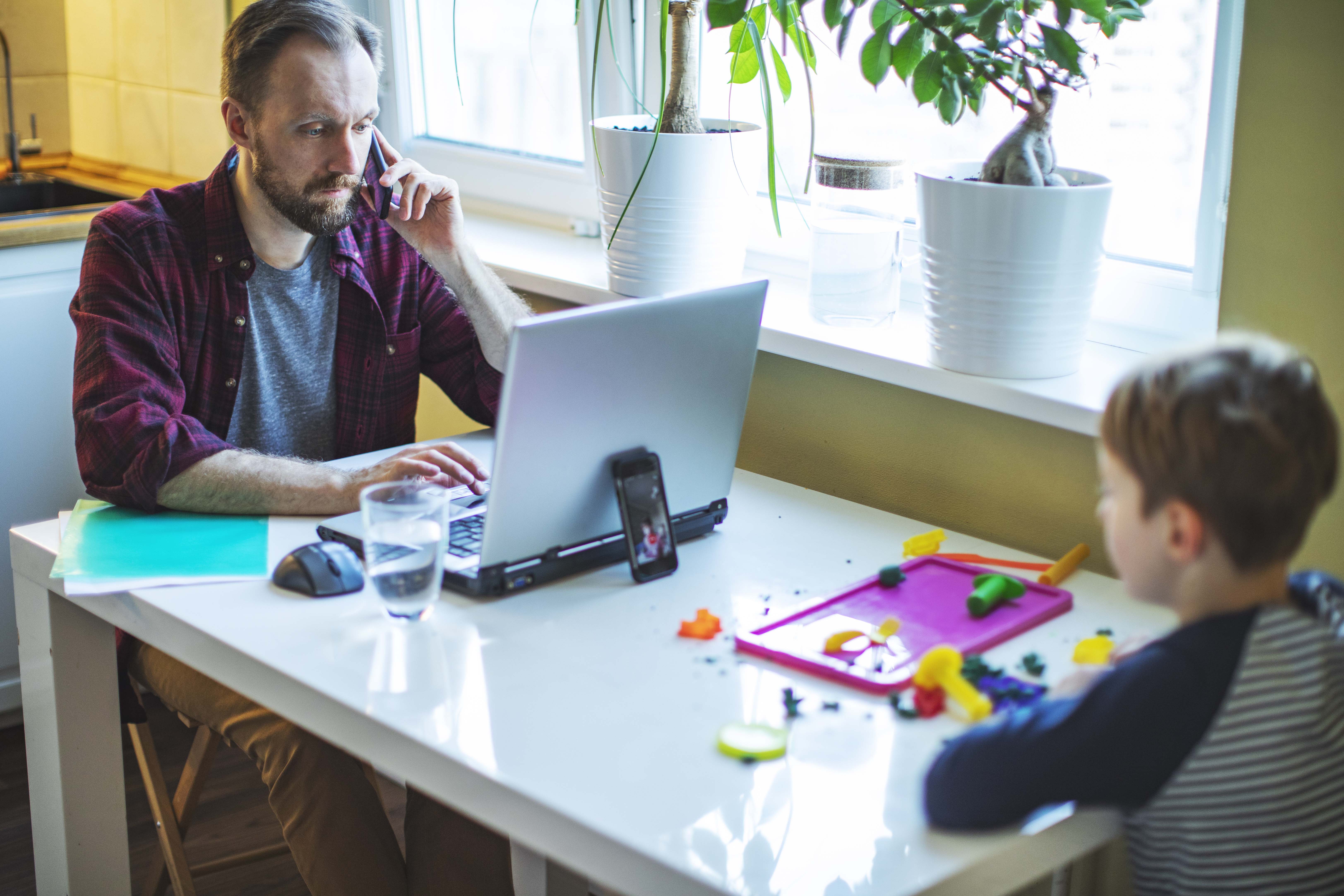 Since the outbreak of COVID-19, there have been significant changes taking place with regards to people’s work, including where and how people work, and how they manage this with other responsibilities they have in their lives, such as their caregiving responsibilities, and other family and social obligations. In addition, many people have faced or are now facing the possibility that they may have their work hours reduced, or may – at least temporarily – not be able to attend work for a period of time. The purpose of this study is to understand some of the social impacts of COVID-19 on individuals and families in order to help direct resources and policies to where they are needed the most. In particular, the study focuses on the impacts of COVID-19 on families, including work and care situations, and how these situations have evolved and changed since the outbreak of the virus. This will be important in helping us understand more about how individuals and families are managing and coping with this current pandemic.
Since the outbreak of COVID-19, there have been significant changes taking place with regards to people’s work, including where and how people work, and how they manage this with other responsibilities they have in their lives, such as their caregiving responsibilities, and other family and social obligations. In addition, many people have faced or are now facing the possibility that they may have their work hours reduced, or may – at least temporarily – not be able to attend work for a period of time. The purpose of this study is to understand some of the social impacts of COVID-19 on individuals and families in order to help direct resources and policies to where they are needed the most. In particular, the study focuses on the impacts of COVID-19 on families, including work and care situations, and how these situations have evolved and changed since the outbreak of the virus. This will be important in helping us understand more about how individuals and families are managing and coping with this current pandemic.
This survey is on-going and can be accessed here.
Read the initial report addressing some of the challenges and positives that children experienced during COVID-19 lockdown.
Contact: Dr Sally Staton or Dr Laetitia Coles
Developing a post COVID-19 recovery strategy
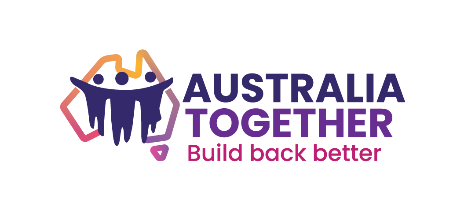 Professor Tim Reddel is part of an alliance of civil society organisations working together in the belief that Australia can #buildbackbetter. The Australia Together Alliance convened a national summit on 1 July 2020 to create an agenda for building long term prosperity and wellbeing in local communities hardest hit by the COVID-19 pandemic.
Professor Tim Reddel is part of an alliance of civil society organisations working together in the belief that Australia can #buildbackbetter. The Australia Together Alliance convened a national summit on 1 July 2020 to create an agenda for building long term prosperity and wellbeing in local communities hardest hit by the COVID-19 pandemic.
The Australian Community Recovery Summit Statement helps build a roadmap for how national-level reforms and local leadership can combine to leave a positive legacy from the trauma of the pandemic and calls on governments and communities around Australia to work together to build back better.
The Australia Together alliance believes that there’s a unique opportunity for Australia to build on the goodwill and collaboration seen through the COVID-19 pandemic to tackle some of the country’s enduring challenges, such as early childhood development; social and affordable housing; jobs, skills and enterprises; and engaging communities.
This alliance includes ISSR, Logan Together, The Mindoroo Foundation, Inclusive Growth, Michael Hogan Consulting, Social Ventures Australia and the Community Services Industry Alliance and numerous key stakeholders across the country interested in supporting investment in community development and resilience in place.
Contact: Professor Tim Reddel
Sleep won’t cure the coronavirus but it can help our bodies fight it
 ISSR researchers Dr Cassandra Pattinson, Dr Kalina Rossa and Professor Simon Smith published an article in the Conversation in 25 March 2020. Getting a good night’s sleep can be difficult at the best of times. But it can be even harder when you’re anxious or have something on your mind – a global pandemic, for example. Right now though, getting a good night’s sleep could be more important than ever. Sleep is essential for maintaining our health and mood. Sleep can also boost our immune function and help us deal with stress. Read more: Sleep won’t cure the coronavirus but it can help our bodies fight it
ISSR researchers Dr Cassandra Pattinson, Dr Kalina Rossa and Professor Simon Smith published an article in the Conversation in 25 March 2020. Getting a good night’s sleep can be difficult at the best of times. But it can be even harder when you’re anxious or have something on your mind – a global pandemic, for example. Right now though, getting a good night’s sleep could be more important than ever. Sleep is essential for maintaining our health and mood. Sleep can also boost our immune function and help us deal with stress. Read more: Sleep won’t cure the coronavirus but it can help our bodies fight it
Staying Connected: Educators, children and families maintaining connection during COVID-19
 Over the last few months, in response to the COVID-19 global pandemic, Australia has experienced restrictions on where people are able to congregate, socialise, and how they participate in educational and social activities. This rapid transition has, in some cases, led to significant changes in daily operations and attendance in Early Childhood Education and Care (ECEC). In response, many ECEC services are now providing flexible or virtual learning experiences. The Staying Connected aims to better understand how early childhood educators, children and families are staying connected and experiencing learning during COVID-19. The key purpose is to provide important information about how to best support educators, children and families.
Over the last few months, in response to the COVID-19 global pandemic, Australia has experienced restrictions on where people are able to congregate, socialise, and how they participate in educational and social activities. This rapid transition has, in some cases, led to significant changes in daily operations and attendance in Early Childhood Education and Care (ECEC). In response, many ECEC services are now providing flexible or virtual learning experiences. The Staying Connected aims to better understand how early childhood educators, children and families are staying connected and experiencing learning during COVID-19. The key purpose is to provide important information about how to best support educators, children and families.
Contact: Dr Sally Staton
Understanding Social Rhythms in power use across the COVID-19 social isolation period.
Professor Simon Smith (Health and Sleep Science) and his group are working with Stephen Snow and Mashhuda Glencross (Centre for Energy Data Innovation, UQ) to look at social rhythms in their power use data including an upcoming in-depth qualitative round looking at changes in daily routines, stress, sleep, environment, activity, and technology use in 20 homes, coupled with very exact power use profiling across the COVID-19 restriction period and upcoming relaxations.
Contact: Professor Simon Smith
UQ COVID-19 Connections Study
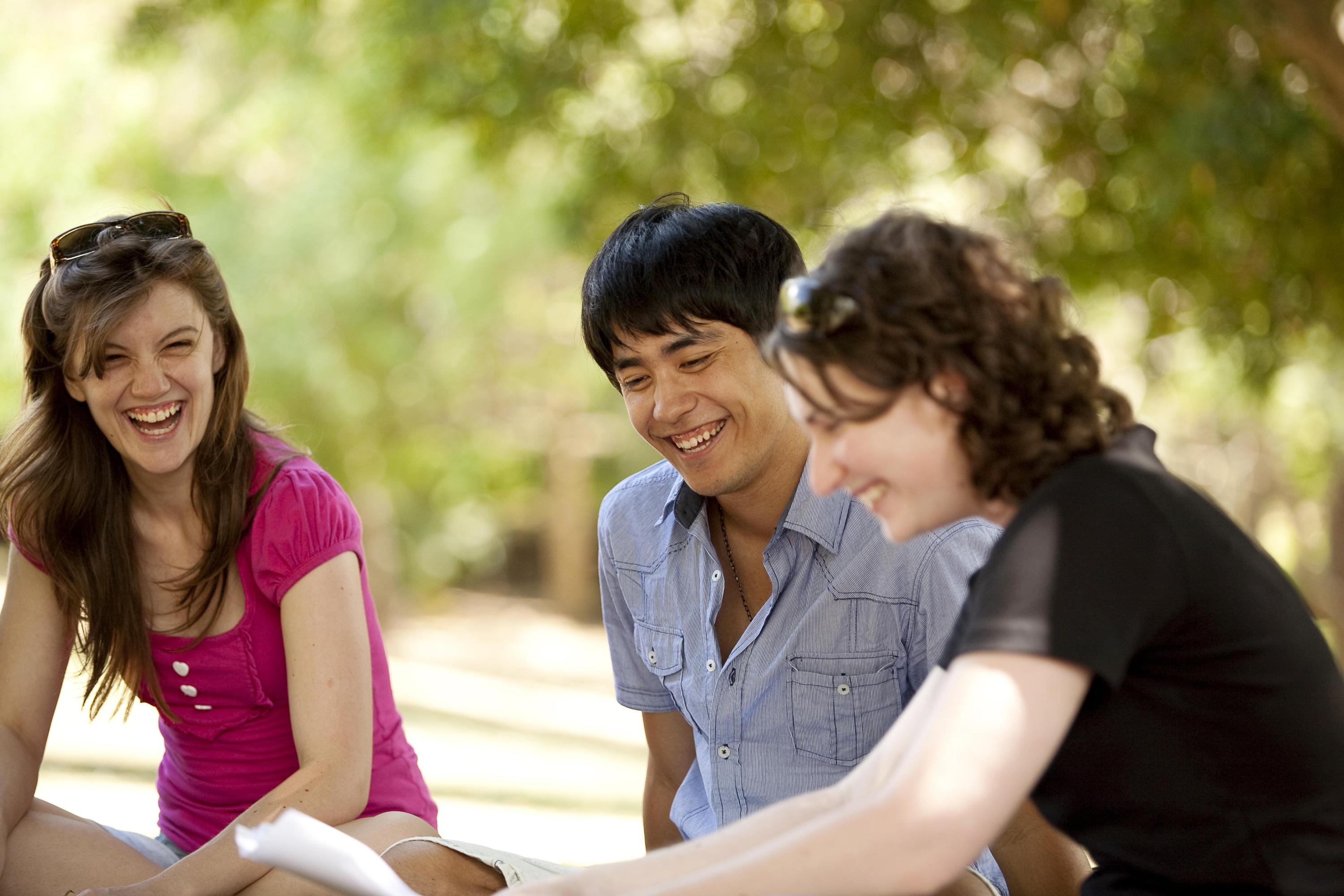 The UQ COVID-19 Connections Study aims at understanding how UQ peer networks are structured during the current Covid-19 pandemic. This study will use a Social Network Analysis (SNA) approach to map how student-to-student relationships influence students’ learning engagement and academic performance, especially after the rapid transition to on-line teaching and learning. Moreover, it aims at revealing how students rely on their colleagues and friends to get help and support they need, contributing to their mental wellbeing. This study outcomes will provide unique insights of health-crisis pattern of peer connections among students that UQ can use to implement potential social and educational-related policy that engage students’ peer support networks to improve students’ learning experiences and prevent a potential drop in students’ engagement and retention during and after the Covid-19 outbreak.
The UQ COVID-19 Connections Study aims at understanding how UQ peer networks are structured during the current Covid-19 pandemic. This study will use a Social Network Analysis (SNA) approach to map how student-to-student relationships influence students’ learning engagement and academic performance, especially after the rapid transition to on-line teaching and learning. Moreover, it aims at revealing how students rely on their colleagues and friends to get help and support they need, contributing to their mental wellbeing. This study outcomes will provide unique insights of health-crisis pattern of peer connections among students that UQ can use to implement potential social and educational-related policy that engage students’ peer support networks to improve students’ learning experiences and prevent a potential drop in students’ engagement and retention during and after the Covid-19 outbreak.
We are currently preparing the Ethics application and we are in the process to engage with three schools to support the data collection.
Contact: Dr Chiara Broccatelli
Drug Trends
 As part of this ongoing (20-year) national surveillance study regarding drug use trends in Australia, we are this year asking people which social distancing measures and other responses to COVID-19 restrictions they are employing, and how this impacts on their patterns of substance use, mental health and associated risks (e.g. access to treatment, involvement in crime), as well as features of the illicit drugs market. This research engages two groups - the Ecstasy and Related Drugs Reporting System (EDRS) interviews people who use psychostimulants; the Illicit Drugs Reporting System (IDRS) interviews people who inject drugs. Queensland participants are drawn from the Brisbane and Gold Coast catchment areas.
As part of this ongoing (20-year) national surveillance study regarding drug use trends in Australia, we are this year asking people which social distancing measures and other responses to COVID-19 restrictions they are employing, and how this impacts on their patterns of substance use, mental health and associated risks (e.g. access to treatment, involvement in crime), as well as features of the illicit drugs market. This research engages two groups - the Ecstasy and Related Drugs Reporting System (EDRS) interviews people who use psychostimulants; the Illicit Drugs Reporting System (IDRS) interviews people who inject drugs. Queensland participants are drawn from the Brisbane and Gold Coast catchment areas.
Contact: Dr Caroline Salom
ADAPT (Australian Drug use Adapting to Pandemic Threats)
 This new online survey specifically addresses the way in which COVID-19 has affected the patterns of substance use, mental, physical and sexual health of people who regularly use illicit or non-prescribed drugs, alcohol and tobacco. Developed in collaboration with the National Drug and Alcohol Research Centre (NDARC) at UNSW, this survey will draw participants from all over Australia but can also be completed by overseas participants. We are working with the European Monitoring Centre for Drugs and Drug Addiction (EMCDD) to adapt it for other languages. Click here to confidentially participate in the survey
This new online survey specifically addresses the way in which COVID-19 has affected the patterns of substance use, mental, physical and sexual health of people who regularly use illicit or non-prescribed drugs, alcohol and tobacco. Developed in collaboration with the National Drug and Alcohol Research Centre (NDARC) at UNSW, this survey will draw participants from all over Australia but can also be completed by overseas participants. We are working with the European Monitoring Centre for Drugs and Drug Addiction (EMCDD) to adapt it for other languages. Click here to confidentially participate in the survey
Contact: Dr Caroline Salom
Evaluating the PBS-Subsidised Take Home Naloxone Pilot
As part of our evaluation of the National PBS-Subsidised Take Home Naloxone Pilot we are monitoring changes in supply of opioid medications and the uptake of naloxone to prevent overdose deaths that are happening in response to COVID-19.
Contact: Dr Caroline Salom
Digital learnings - Indigenous Education
ISSR researchers have been working with the Former Origin Greats (FOGs) to develop a proposal on learnings for delivery of Indigenous education supports online. We take the outstanding success of the online adapted program as a model for post- COVID-19 delivery and community engagement. Work also includes capacity building for Indigenous researchers.
Contact: Professor Karen Thorpe or Dr Azhar Potia
COVID19 care after stillbirth and neonatal death across Australian and New Zealand maternity settings
Many health care professionals are looking for advice about providing best possible care for parents whose baby is stillborn or dies soon after birth in the midst of the COVID19 pandemic. Many of the support systems and rituals available to bereaved parents have been suspended and new approaches are needed to ensure parents receive best practice care. As part of the Australian Centre for Research Excellence in Stillbirth (Stillbirth CRE) national stillbirth program, we are consulting with members of our national perinatal bereavement collaborative to help understand and inform practice.
Contact Assoc Prof Fran Boyle
Impact of COVID19 on parents who experience stillbirth or newborn death
As part of the Australian Centre for Research Excellence in Stillbirth (Stillbirth CRE) care after stillbirth program, we are working with colleagues from multiple countries, including Italy, Spain, UK, Ireland, USA, and Canada, to conduct a global online survey that will help us to understand the challenges and impacts for parents who experience the death of a baby during the COVID19 pandemic.
Contact Assoc Prof Fran Boyle
Impacts of COVID-19 crossing from Merauke Indonesia, into the South Fly of PNG, and then the border with the Torres Strait
Professor Mark Moran has over the past four years conducted fieldwork into Australia’s borderland with Papua New Guinea and Indonesia. His research team recorded the extent of informal border crossings and a growing trade route from Indonesia to PNG, along the South Fly coast and bordering Torres Straits Islands. Merauke Regency in Indonesia has a population in excess of 200,000, and is emerging as a hot spot for COVID-19. His research is relevant to understanding the risks of cross-border transmission of COVID, including vulnerable Torres Strait Islander communities.
Contact Professor Mark Moran
Unemployment and domestic violence: National policies in response to the COVID-19 pandemic, and their impacts on domestic violence and violence against women.
The Centre of Excellence for children and families over the Life Course chief investigators are developing a paper using large scale publically accessible data on COVID-19 to assess the impact on domestic violence. The work is currently being led by Professor Lorraine Mazerolle and is cross-nodal (national) and involves international collaborators.
Contact: Professor Janeen Baxter or Professor Lorraine Mazerolle
Improving hand hygiene practices in adolescents
Researchers are using the Global Students Health Survey data (n~336,000) to assess hand hygiene practices in adolescents across the globe and identifying the opportunities for improving hand hygiene in adolescents to reduce disease
Contact: Assoc Prof Abdullah Mamun or Dr Yaqoot Fatima
Identifying lifestyle behaviours that increase the susceptibility for COVID-19
An international collaboration of researchers are currently using the UK Biobank data (n~500,000) to investigate and identify lifestyle behaviours (particularly poor sleep) that increase the susceptibility for COVID-19 infection and affect the recovery process.
Contact: Assoc Prof Abdullah Mamun or Dr Yaqoot Fatima
Input into the Household, Income and Labour Dynamics in Australia (HILDA) Survey
ISSR researchers have proposed COVID-related content for the next HILDA wave on the issue of uptake/barriers and use of telehealth services for physical and mental health during this period and other items in collaboration with the Centre for Excellence for the Digital Child team.
Contact: Karen Thorpe or Dr Sally Staton

